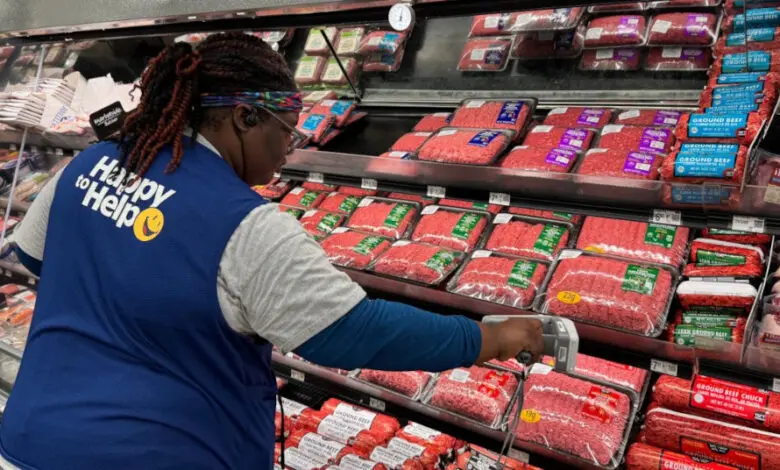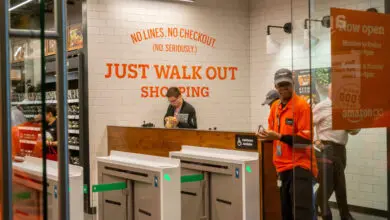Walmart tracks shelf life of perishable products using RFID with Avery Dennison

Walmart is testing RFID technology in fresh categories together with labelling specialist Avery Dennison. The pilot enables Walmart to automatically identify fresh produce and its shelf life at item level for the first time. The bulk capture of many items at once is a first in this product group. Store employees can track stocks and their shelf life more precisely, monitor freshness more specifically and thus reduce food waste. Whether the solution works reliably in practice under real conditions remains to be proven.
Avery Dennison is supplying a new generation of sensor labels that are designed to work even in high-moisture, cold environments – such as meat counters, bakery departments and fresh convenience products. RFID was previously considered impractical for fresh categories because high-moisture, cold environments and metal can interfere with the signals.
Walmart’s store employees should be able to precisely track inventory at item level in real time with the newly developed radio tags from the technology provider from Mentor, Ohio. RFID tags identify which products are in stock and when they will expire – Walmart employees are to be significantly supported in inventory management.
Freshness as an endurance test for RFID
Walmart states that its store employees use the available best-before dates for each fresh item to rotate products more effectively and control price discounts. The aim is to reduce the amount of unsold food. Julie Vargas, Vice President of Avery Dennison, comments: “By giving each item its own digital identity, associates instantly know the freshness of the foods they are handling, enabling better inventory management and resulting in less waste.”
Cold, high-moisture or metallic packaging can block RFID signals – this has been the reason why its use in fresh food categories has been considered unreliable for years. If Avery Dennison succeeds in overcoming these limitations, it would be a significant step forward. However, if the technology remains susceptible to faults, there is a risk of the very problems it is supposed to solve: incorrect stock data and unnecessary markdowns.
Focus on reducing food waste
Walmart is specifically linking the RFID pilot to its sustainability strategy, which aims to halve food waste by 2030. The world’s largest retail company wants to use digital labels to collect real-time data at item level in order to carry out product rotations at an early stage and systematically reduce food waste.




